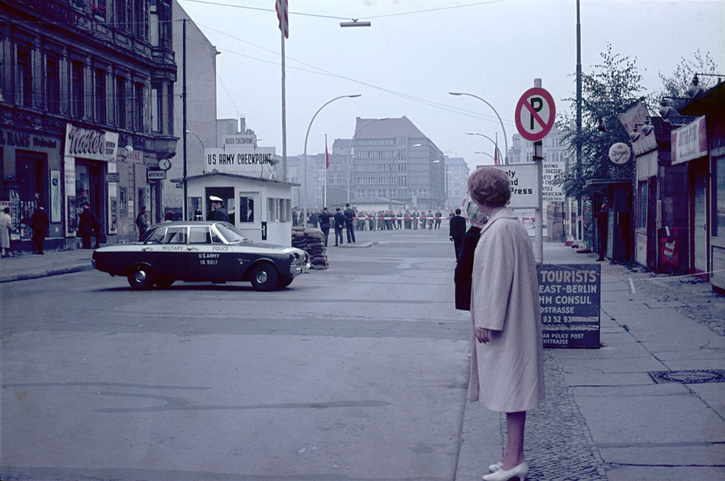30 years after German reunification: How gender roles deteriorated to Western standards
To what extent does a society enable its women and men to combine work and family life? To what extent do motherhood and parenthood or other responsibilities for upbringing and care go hand in hand with certain constraints on working life? And vice versa: To what extent does working life entail certain limitations on family life?
In 1989, East Germany, the German Democratic Republic (GDR), and West Germany, the old Federal Republic of Germany (FRG), displayed diametrically opposed cultural and structural starting points with regard to these questions. In the GDR, it was highly desirable in cultural terms to the point of being "prescribed" that women should be able to combine work and family life: Their job careers had priority, but family was also important. In the old Federal Republic of Germany, on the other hand, the norm of the "breadwinner model" predominated both culturally and structurally, allowing mothers at most to play the role of additional earners: family and housework had priority, job careers were unimportant.
Social norms that prescribe how people are supposed to live are always problematic from a (gender equality) policy point of view - the GDR and the old FRG were no exceptions in this regard. And yet: 30 years after German unification, no one can deny that women in the GDR had better opportunities for harmonising these different spheres and hence financial independence (as well as financial security on the whole) than their counterparts in the FRG.
Pronouncing the GDR model for combining work and family a dead letter
In the process of German unification, the societal norm of the "breadwinner model" was successively imposed on Eastern Germany and Eastern German women. The GDR model for combining work and family was pronounced a dead letter: firstly, the infrastructure which had made it possible to pursue both career and family was dismantled everywhere. Secondly, an attitude gained currency according to which women's right to work could be regarded as subordinate to that of men. Women in the GDR, who had previously enjoyed equality, were thus abandoned to social malaise and decline. Like men in the former GDR, this was unfamiliar terrain and they therefore had difficulty coping with it. Unlike men in the former GDR, however, they were more at the mercy of developments, because at the same time they were deprived of an infrastructure making it possible to combine work and family while offering them social support for their claim to a job.
This successive dismantling of prevailing cultural and structural conditions fostering the combination of work and family and employment opportunities for women was followed, roughly around the beginning of the new millennium, by the "political discovery" of a need for modern policies promoting a harmonious mix of work and family accompanied by efforts to increase the employment rate of women. From the West German perspective, "reunification" thus stands for the beginning - albeit with a delay of about one decade - of a promising and continuously rising trajectory in policy aimed at helping women unite work and family and encouraging equality for women.
Deteriorating to gender norms of the West
From an Eastern German perspective, however, this trend, first downward and then upward, felt more like an "aimless" roller coaster ride. Previous achievements of the GDR started to diffuse and be adopted in Western Germany about 20 years ago - and re-established in Eastern Germany with considerable exertion. This is a profoundly problematic development, especially since (re)construction of the East German work-family-balance and employment conditions is still beyond the reach of many women!
This finding is graphically brought home by a study entitled "Relief sought - Good policy for women with low incomes". Here a group of 30- to 70-year-old women with so-called precarious incomes were interviewed about their life realities. It is apparent that, 30 years after German unification, the realities of life with regard to the compatibility of family and career - at least for the group under scrutiny - have for the most part converged; in other words, the East has deteriorated down to the level of the West.
The role of (un)completed policies promoting equality for women
Here, not least, the contours of a gaping incongruity between aspiration and reality solidify. After all, the "legacies" of the GDR include an emancipative image of women that was and still is being passed on from grandmothers and mothers to their granddaughters and daughters. This is reflected in still-differing individual notions of the work-life mix and expectations regarding job careers, for instance in the form of different levels of acceptance for full-time employment of mothers.
However, it would appear that this self-image will not be able to hold sway or be attainable in view of women's current life situations and underlying conditions. Current publications - such as "Ostfrauen verändern die Republik" - reveal a younger generation of women striving for more family-oriented, secluded lifestyles and low-risk careers in recent years. This can unquestionably be characterised as a rollback in terms of gender roles.
Are (un)completed policies promoting a harmonious work-family balance and equality for women hence one of the pivotal questions surrounding (un)completed German unification? At least for half of the population of Eastern Germany this is quite conceivably the case.
This article was originally published in German in the FES info Magazin 01/2020.
About the Author
Dr. Uta Kletzing is an expert on family and gender policy at the Forum for Politics and Society (Forum Politik und Gesellschaft) of the Friedrich-Ebert-Stiftung in Berlin.
About FES Connect
Connecting people, in the spirit of social democracy, we source and share content in English from the German and international network of the Friedrich-Ebert-Stiftung.





